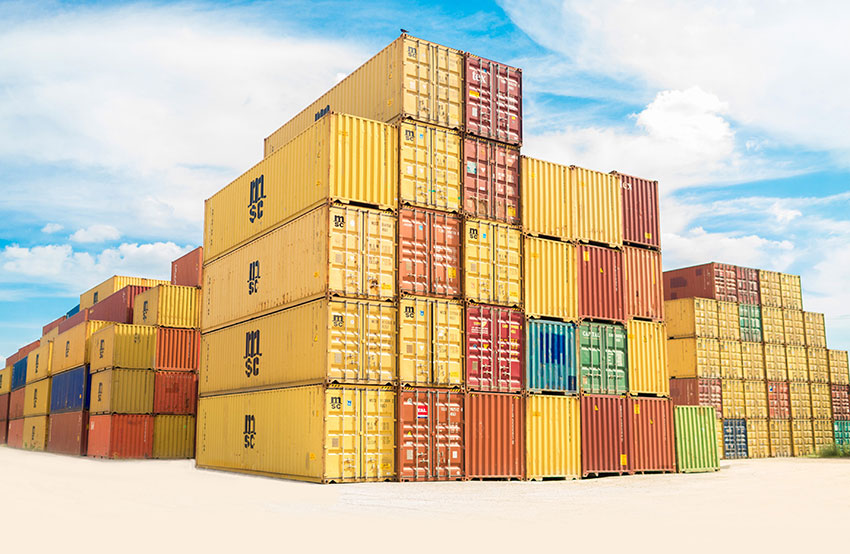Show:
6 Things You Need To Know About Freight Forwarding
If you’re in the market for a freight forwarding company, it’s important to do your research first. There are many different freight forwarding companies out there, and not all of them are created equal. In this blog post, we will discuss six things you need to know about freight forwarding before you make a decision. We’ll cover topics like pricing, services offered, and more.

Pricing
When it comes to pricing, there is no one-size-fits-all solution. Every freight forwarding company has its pricing structure, and you need to find the one that best fits your needs. Some companies charge by the pound, while others charge by the shipment. Be sure to ask about pricing before you make a decision. The high-frequency ocean and air services have a unique pricing algorithm that analyzes your specific shipment to get you the best price. Some companies will offer discounts if you ship frequently, so it’s worth asking about that as well. You should also ask about any hidden fees or surcharges. Freight forwarding companies can charge extra for things like fuel surcharges, security fees, and more. Be sure to get a complete list of all charges before you make a decision.
Services Offered
Freight forwarding services can be broadly divided into two categories. Transportation Services include arranging for the pick-up, movement, and delivery of freight. This also includes storage and warehousing if required. Documentation services are the other category and include completing and processing all the paperwork required for importing and exporting goods. Your freight forwarder will take care of all the paperwork, ensuring that it is completed correctly and submitted on time. This includes documents such as the commercial invoice, packing list, bill of lading, and insurance certificate.
Both of these types of services are essential in ensuring that your shipment arrives at its destination safely and on time. When choosing a freight forwarder, be sure to ask about the range of services they offer and whether they can tailor their services to meet your specific needs.
Transit Times
The time it takes for your goods to reach their destination is called transit time. This can be affected by many factors, such as the mode of transportation, weather conditions, and the distance the goods need to travel. Your freight forwarder will work with you to determine an estimated transit time for your shipment. They will take into account all of the relevant factors and come up with a timeline that they feel is realistic.
However, it’s important to keep in mind that transit times are always estimates. There may be delays due to unforeseen circumstances beyond your freight forwarder’s control. If you’re working on a tight deadline, make sure to communicate this to your freight forwarder. They may be able to make arrangements to get your goods to their destination faster. Keep in mind that you may have to pay a premium for expedited shipping. But it may be worth it if it gets your goods where they need to go on time.

Tracking and Reporting
This is one of the most important aspects of freight forwarding. Your freight forwarder should provide you with updates on the status of your shipment, as well as any changes that occur along the way. They should also be able to provide you with detailed reports on the progress of your shipment.
If you are not receiving regular updates or if you are not happy with the level of detail in the reports, then it is time to find a new freight forwarder. Make sure to ask about tracking and reporting features when you are comparing different freight forwarders. This will help you make the best decision for your business.
Insurance
Most freight forwarders offer some form of insurance, but it is important to understand the coverage and make sure it meets your needs. Some things to consider are what kinds of events are covered, what is the deductible, and how much does it cost? You should also find out if the freight forwarder offers any discounts for insuring with them. Some companies will only insure against damage or loss, while others will also cover delays. It is important to know what is covered so that you can plan accordingly. For example, if you are shipping time-sensitive goods, you will want to make sure that delays are covered. The deductible is the amount of money that you have to pay out-of-pocket in the event of a claim. Make sure that the deductible is an amount that you can afford to pay.
The cost of insurance will vary depending on the value of your shipment and the coverage you choose. Higher value shipments will usually require higher premiums. Make sure to compare rates from different freight forwarders to get the best deal. When choosing a freight forwarder, be sure to ask about their insurance offerings and make sure it meets your needs. By understanding your coverage and getting quotes from different companies, you can be sure to get the best possible deal on shipping insurance for your business.
Choosing the Right Company
There are many things to consider when choosing a freight forwarding company. You need to be able to rely on your freight forwarder to get your shipments delivered on time and as promised. Make sure to check out reviews and testimonials before making your decision. Clear and timely communication is essential for a good working relationship with your freight forwarder. Make sure you choose a company that is responsive and easy to reach. Your business may have unique shipping needs that require a bit of extra flexibility from your freight forwarder. Choose a company that is willing and able to accommodate your specific requirements. Working with a reputable and reliable freight forwarder will help ensure smooth sailing for your business.
If you keep these things in mind, you should have no problem finding the right freight forwarder for your business. Do your research and take your time to find a company that you can trust. With the right partner, shipping will be one less thing you have to worry about.
These are six things you need to know about freight forwarding to make informed decisions when shipping your goods. If you have any further questions, please don’t hesitate to research online or contact a freight forwarder directly.

 Return to Previous Page
Return to Previous Page








